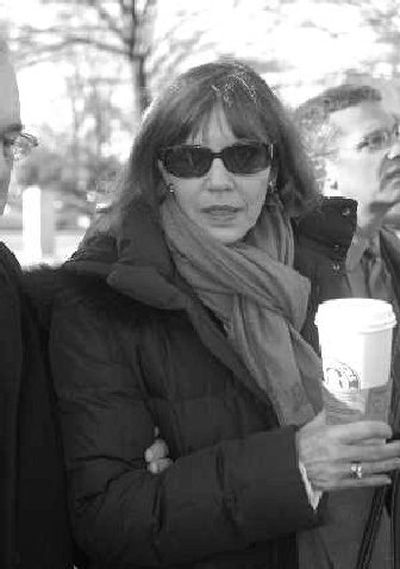Reporter says Libby told her of Plame

WASHINGTON – Testifying against a source she once went to jail to protect, former New York Times reporter Judith Miller said Tuesday that she had three discussions with former vice presidential aide I. Lewis “Scooter” Libby in which he told her that the wife of a Bush administration critic worked for the CIA.
Miller described one meeting with Libby that occurred a full two weeks before the time that Libby has told investigators he first learned about CIA employee Valerie Plame from another journalist.
The hour-long appearance by Miller – who spent 85 days in jail rather than reveal her conversations with Libby to a federal grand jury two years ago – was a blow to his defense.
Vice President Dick Cheney’s onetime chief of staff is charged with lying about his conversations with Miller and two other prominent journalists in an effort to obstruct a federal investigation into how the identity of Plame became public.
Miller, 59, was often on the defensive during a hard-edged cross-examination.
She is one of the trial’s most compelling figures because of her high-profile role covering Iraq’s alleged weapons programs, her extensive contacts with Libby, and the time she spent in an Alexandria, Va., jail for refusing to reveal his identity as her source.
Miller left the New York Times in 2005 and now works as a freelance journalist.
During her testimony, Miller described how she got to know Libby while co-authoring a book on germ warfare. She said she sought Libby out as a source for stories about why weapons of mass destruction were not found in Iraq.
As Bush administration claims about the weapons began to crumble, newspapers were beginning to report about a trip that Plame’s husband, Joseph C. Wilson IV, had taken to Niger in 2002 to assess claims that Iraq was seeking weapons-grade uranium.
Wilson wrote about his trip in a July 6, 2003, op-ed article in the New York Times that accused President Bush of misleading the public about the Iraqi interest in Africa.
Plame was identified as a CIA operative eight days later in print by syndicated columnist Robert Novak, which triggered the probe into whether anyone had broken federal laws that make it a crime to reveal the identity of a covert agent.
On Tuesday, Miller recounted meeting Libby at his office on June 23, 2003, where she found him “really unhappy and irritated” by accusations that the White House had manipulated intelligence.
She also recalled that Libby told her Wilson’s wife worked for the “bureau” – a reference she said she found puzzling because the term commonly refers to the FBI, not the CIA.
Miller grew testy under cross-examination by defense attorney William Jeffress, who sought to cast her as an unreliable witness with a faulty memory. In particular, he questioned Miller’s claim that she had failed to remember her first face-to-face meeting with Libby until long after the leak investigation started, when she found a notepad under her desk.